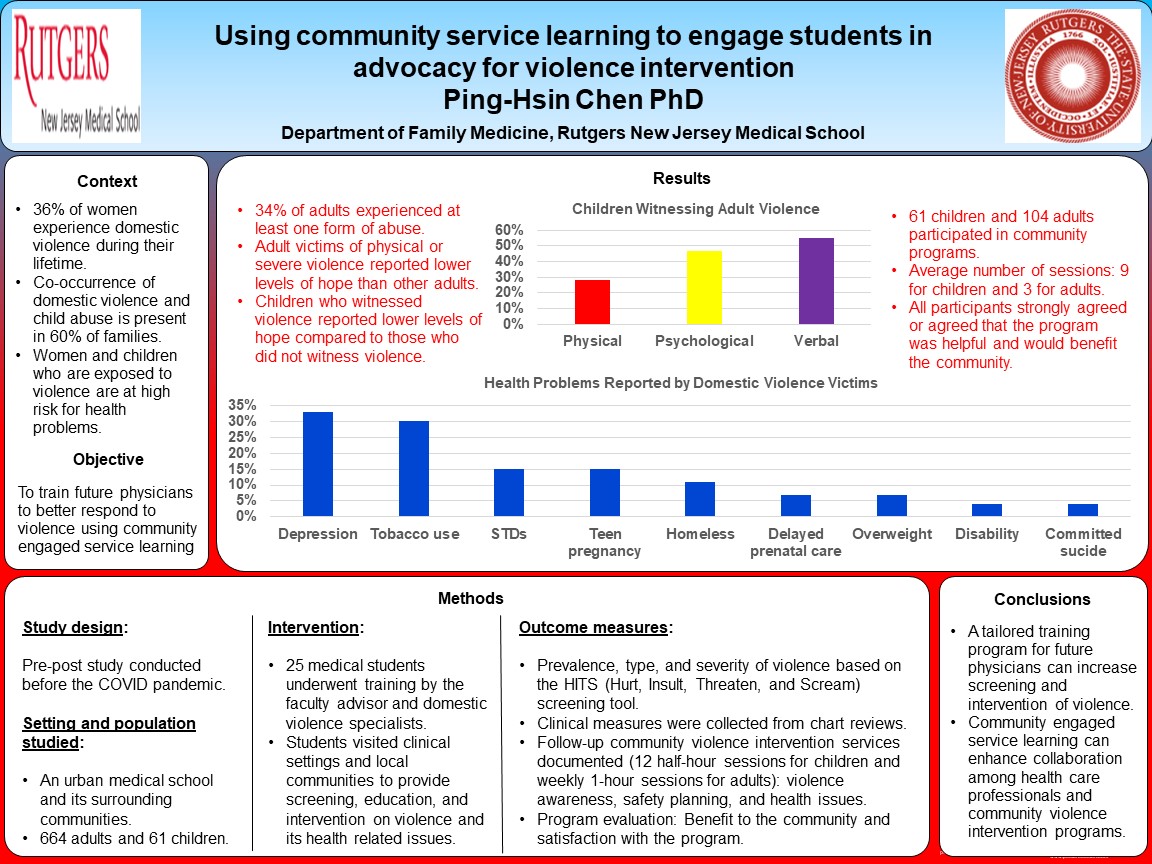PCR079: Using community service learning to engage students in advocacy for violence intervention
Ping-Hsin Chen, PhD
Abstract
Context: Women and children who are exposed to violence are at high risk for health problems. Objective: This study aimed to use community engaged service learning to train medical students for providing direct services to domestic violence survivors and their children. Study Design: Pre-post study conducted before the COVID pandemic. Medical students (N=25) underwent training by the faculty advisor and domestic violence specialists. Once trained, students visited clinical settings and local communities to provide screening, education, and intervention. Setting: An urban medical school and its surrounding communities. Population Studied: 664 adults and 61 children. Interventions: The 12 half-hour sessions for children assisted them in coping with the negative effects of abuse. Topics included healthy relationships, mental health, bullying, safety planning, media and violence, and topics raised by children. The weekly 1-hour sessions for adults provided a safe, supportive, and confidential environment for women to discuss challenges, exchange information, express their feelings, and share experiences. Topics included domestic violence intervention, drug and alcohol abuse, mental health, health disparity, women’s health, and strengthening relationships with children. Outcome Measures: Prevalence of violence, violence related health issues, and satisfaction with the program. Results: 28% of children reported witnessing adult physical violence, 47% reported witnessing adult psychological abuse, and 55% reported witnessing adult verbal abuse. 33% of adult victims had depression, 30% used tobacco, 15% had STDs, 15% experienced teen pregnancy, 11% were homeless, 7% had delayed prenatal care, 7% used illegal drugs, 7% were overweight, 4% had disability, and 4% committed suicide. More than 90% of children felt that they know better regarding what they can do when they see violence or feel unsafe. 104 of the adults actively participated in the weekly sessions (mean=3). All adult participants strongly agreed or agreed that the program was helpful and would benefit the community. Conclusions: A tailored training program for future physicians can increase screening and intervention of violence. Community engaged service learning can enhance collaboration among health care professionals and community violence intervention programs.

Jack Westfall
jwestfall@aafp.org 11/20/2021This is a great topic and research study. Nice work. Thanks